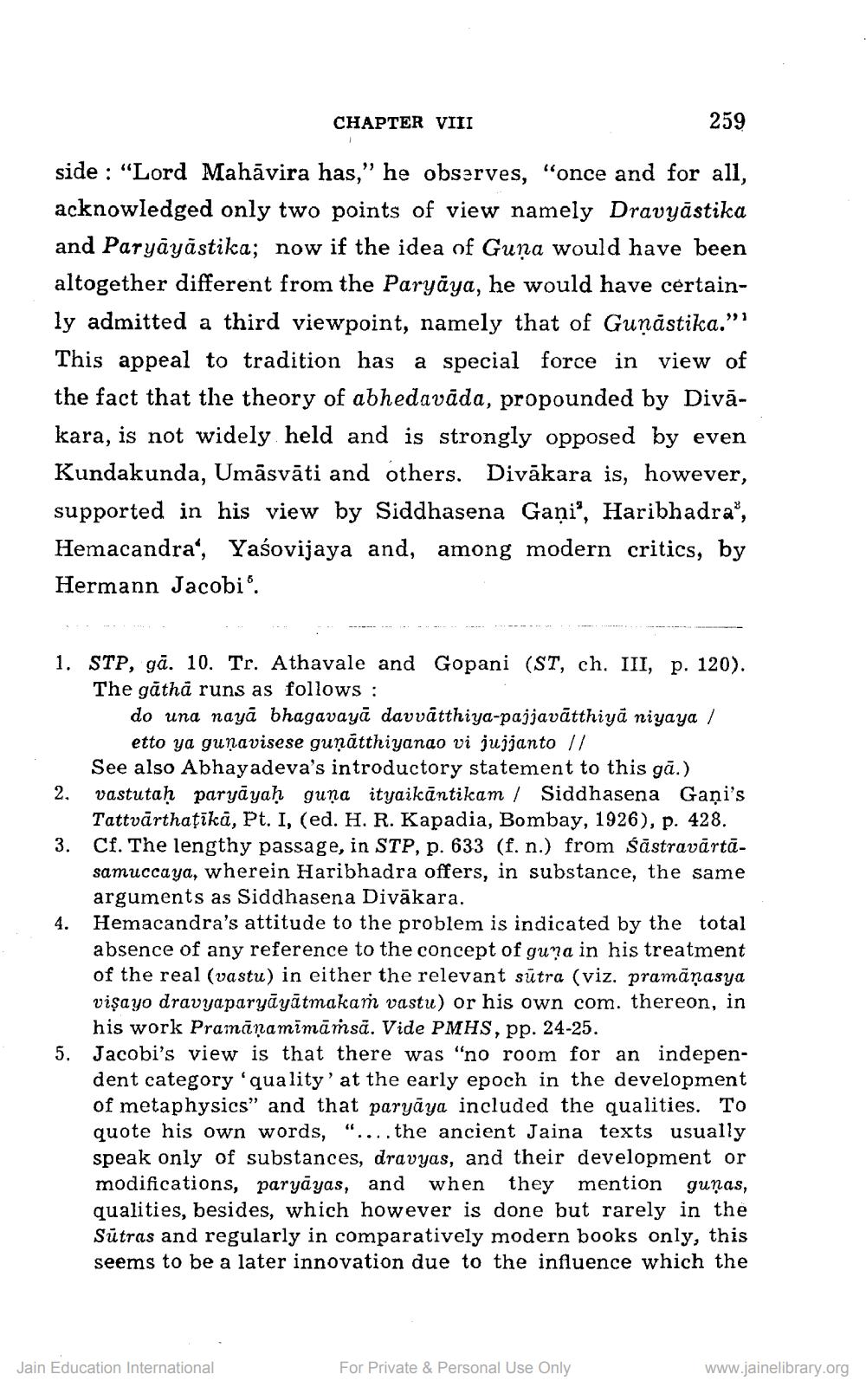________________
CHAPTER VIII
259
side : "Lord Mahāvira has," he observes, "once and for all, acknowledged only two points of view namely Dravyāstika and Paryāyāstika; now if the idea of Guņa would have been altogether different from the Paryāya, he would have certainly admitted a third viewpoint, namely that of Guņāstika.” This appeal to tradition has a special force in view of the fact that the theory of abhedavāda, propounded by Divākara, is not widely held and is strongly opposed by even Kundakunda, Umāsvāti and others. Divākara is, however, supported in his view by Siddhasena Gani', Haribhadra", Hemacandra', Yaśovijaya and, among modern critics, by Hermann Jacobio
1. STP, gā. 10. Tr. Athavale and Gopani (ST, ch. III, p. 120). The găthā runs as follows:
do una nayā bhagavayā davvätthiya-pajjavätthiyā niyaya /
etto ya gunavisese guņátthiyanao vi jujjanto // See also Abhayadeva's introductory statement to this gā.) vastutaḥ paryāyaḥ guna ityaikāntikam / Siddhasena Gani's Tattvārthaţika, Pt. I, (ed. H. R. Kapadia, Bombay, 1926), p. 428. Cf. The lengthy passage, in STP, p. 633 (f. n.) from śāstravārtā. samuccaya, wherein Haribhadra offers, in substance, the same arguments as Siddhasena Diväkara. Hemacandra's attitude to the problem is indicated by the total absence of any reference to the concept of guna in his treatment of the real (vastu) in either the relevant sūtra (viz. pramār vişayo dravyaparyāyātmakam vastu) or his own com. thereon, in
his work Pramnāņamimāṁsā. Vide PMHS, pp. 24-25. 5. Jacobi's view is that there was "no room for an indepen
dent category 'quality' at the early epoch in the development of metaphysics" and that paryāya included the qualities. To quote his own words, ".... the ancient Jaina texts usually speak only of substances, dravyas, and their development or modifications, paryāyas, and when they mention guņas, qualities, besides, which however is done but rarely in the Sūtras and regularly in comparatively modern books only, this seems to be a later innovation due to the influence which the
Jain Education International
For Private & Personal Use Only
www.jainelibrary.org




